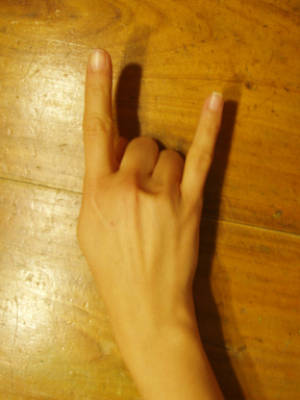The Art of Gesture
Well, for those traveling to Italy or who simply want to learn this special way of communicating, there is a helpful guide, a tiny book containing a lot of useful notions on how to speak the language of hands. Speak Italian, The Art of the Gesture by Bruno Munari published by Chronicle Books is available, for only $14.95, in all bookstores and novelty stores nationwide.
To understand things better we must say that there are different kinds of gestures:
Symbolic, signs that are recognized worldwide as they have a specific meaning that are socially known. Indeed everybody is familiar with the meaning of hands clapping at the end of a good show.
Referential signs refer to specific actions that must be performed. Placing the index finger in front of one’s lips, means “shut up.” Then we have mimic gestures, where the hands describe an action, such as drinking, cutting, or reading.
The idea of the book wasn’t Munari’s. There already was a first collection of gestures published by Andrea de Jorio in Naples in 1832. It was a volume of 380 pages of text and 19 illustrations. The original title was La mimica degli antichi investigata nel gestire napoletano. The book was then republished twice: first in Turin in 1958, thanks to the Carpano Society, and then in 1963 with the addition of 20 texts and illustrations. The title was changed to Il supplemento al dizionario Italiano. And this is when Munari got into the game.
Bruno Munari is considered one of the major masters of Italian design, a true artist in a never-ending quest for new forms of expression. In his career he has shined in the visual arts, sculpture, graphic design, cinema, and more. Many know him for his “libri inutili” (useless books) for little children. His extraordinary abilities brought him to collaborate with Italy’s major publishing houses such as Mondadori and Einaudi.
Among the many images featured in the book, we find one of Italy’s favorite gestures, “le corna” (the horns). If the hand points downward, it is a sign of good wish against bad luck as they are directing all the negative energy to the ground. While if the hand points in the opposite direction the meaning is rather different and you are basically calling a person a cornuto, a cuckold. This sign, with the latter meaning, is often seen on Italian streets performed by aggressive drivers.
A cute one that not many people know is the sign of hunger, where the flat hand moves back and forth against one’s stomach.
Many Hollywood films are familiar with the sign of menace where the hand moves across the neck as is to mean “I’ll cut your throat.”
And there’s much more, more complex hand movements that say “he’s a wise guy,” or “these two are an item,” basically anything for those who want to learn a language that is not available in regular dictionaries.





































i-Italy
Facebook
Google+
This work may not be reproduced, in whole or in part, without prior written permission.
Questo lavoro non può essere riprodotto, in tutto o in parte, senza permesso scritto.